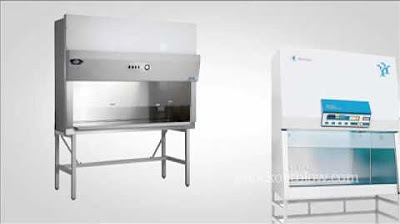Biosimilars: Manufacturing and Inherent Variation
Summary
TLDRThis video explains biological products, including reference products, biosimilars, and interchangeable biosimilars. It highlights the complex manufacturing processes of biological products, which are created using recombinant DNA technology in living systems. The video compares biosimilars to generic drugs, noting that while both provide similar treatment options at potentially lower costs, biosimilars are more complex due to inherent variations in the proteins produced. It also discusses FDA approval standards for biosimilars, ensuring they meet rigorous quality, safety, and effectiveness requirements, and emphasizes that they are made from the same types of living sources and offer comparable treatment benefits to reference products.
Takeaways
- 😀 Biological products are large, complex molecules made using recombinant DNA technology.
- 😀 These products include reference products (original biologics), biosimilars, and interchangeable biosimilars.
- 😀 Biosimilars are highly similar to FDA-approved reference products and have no clinically meaningful differences.
- 😀 Biological products are produced in living systems such as microorganisms or animal cells.
- 😀 The manufacturing process involves inserting a piece of DNA into a cell, which produces a specific molecule like a protein.
- 😀 The produced molecules are purified through filtration and chromatographic techniques.
- 😀 The purified product is analyzed for structure, function, and purity before it is used as a biological product.
- 😀 FDA requires biosimilars to meet rigorous standards for approval, ensuring their quality, safety, and effectiveness.
- 😀 Biosimilars offer patients more treatment options at potentially lower costs, similar to generic drugs.
- 😀 Unlike most generic drugs (which are small molecules), biosimilars are complex molecules with slight variations inherent in the manufacturing process.
- 😀 Each batch of biosimilar or reference product may contain slight variations in the protein, but these do not affect the product's overall quality.
Q & A
What are biological products?
-Biological products are large, complex molecules that are produced in living systems like microorganisms or animal cells using recombinant DNA technology. They include reference products, biosimilars, and interchangeable biosimilars.
What is the difference between reference products and biosimilars?
-A reference product is the original biologic approved by the FDA, while a biosimilar is highly similar to the reference product with no clinically meaningful differences in safety, effectiveness, or purity.
How are biological products manufactured?
-Biological products are made through a complex process where a piece of DNA is inserted into a living cell. The cell then produces a specific molecule, such as a protein, which is secreted into a culture medium, purified, and then filled into containers.
What is the role of recombinant DNA technology in the production of biological products?
-Recombinant DNA technology allows the insertion of specific DNA into living cells, instructing them to produce desired molecules, such as proteins, which are then used as biological products.
Why are biosimilars compared to generic drugs?
-Biosimilars are similar to generic drugs in that they are versions of original, brand-name biologic products, offering patients more treatment options at potentially lower costs. However, there are key differences in how they are manufactured and the complexity of their composition.
What makes biological products more complex to manufacture than small molecule drugs?
-Biological products are made from living systems, which introduces inherent variations in the product. Unlike small molecule drugs, which are chemically synthesized and simpler to replicate, biological products are proteins that can have slight modifications in their structure.
What is meant by 'inherent variations' in the context of biological products?
-Inherent variations refer to the slight differences that naturally occur during the manufacturing process of biological products. These variations do not affect the final product's effectiveness but are an expected part of the production process.
How are biosimilars evaluated to ensure their similarity to reference products?
-Biosimilars undergo rigorous testing to demonstrate that their structure, function, and purity are highly similar to the reference product. Data is provided to show that the variations in the biosimilar are comparable to those in the reference product.
Can a biosimilar have different side effects from the reference product?
-No, biosimilars are required to have the same side effects and expected treatment benefits as the reference product, as they are designed to be highly similar in terms of safety and effectiveness.
What does the FDA require for the approval of biosimilars?
-The FDA requires that biosimilars meet rigorous approval standards, including demonstrating that they are highly similar to the reference product in terms of structure, function, and safety, ensuring that patients and healthcare providers can rely on their quality.
Outlines

Этот раздел доступен только подписчикам платных тарифов. Пожалуйста, перейдите на платный тариф для доступа.
Перейти на платный тарифMindmap

Этот раздел доступен только подписчикам платных тарифов. Пожалуйста, перейдите на платный тариф для доступа.
Перейти на платный тарифKeywords

Этот раздел доступен только подписчикам платных тарифов. Пожалуйста, перейдите на платный тариф для доступа.
Перейти на платный тарифHighlights

Этот раздел доступен только подписчикам платных тарифов. Пожалуйста, перейдите на платный тариф для доступа.
Перейти на платный тарифTranscripts

Этот раздел доступен только подписчикам платных тарифов. Пожалуйста, перейдите на платный тариф для доступа.
Перейти на платный тарифПосмотреть больше похожих видео
5.0 / 5 (0 votes)






